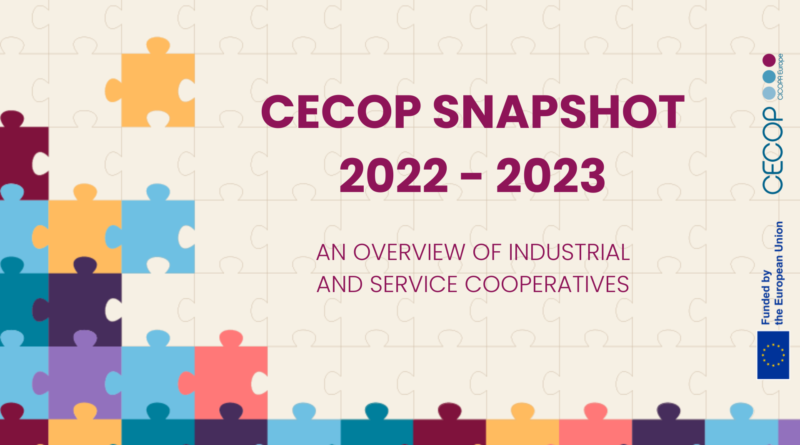CECOP new report on Industry and Service cooperatives in Europe
5 September 2024
In 2022-2023 CECOP, the European Confederation of Cooperatives in the industry and Services sector carried out a quantitative data collection among its members to gain better insight into the network.
CECOP represents approximately 43,000 cooperatives contributing to the European economy with an average annual turnover of 60 billion euro. They primarily operate in the services sector (73%), industry (14%) and construction (12%). When it comes to typologies, most cooperatives are worker cooperatives (72%), followed by social cooperatives (27%).
The cooperatives part of CECOP network, which employ over 1.3 million workers, contribute to build a stable, participatory, inclusive and quality jobs, promoting economic democracy and social cohesion across Europe. For instance, data report that 72% of the workers are members of the cooperatives, meaning they actively participate in the decision making and strategic planning of the cooperative, and that 85% of the employment contracts are long term.
Some country specific data show cooperatives’ contribution to the work inclusion of vulnerable groups. For instance, 33% of workers in the cooperatives affiliated to our Bulgarian and Czech members are people with disabilities, while over half of the workers in the cooperatives affiliated with CECOP Italian and Czech members are women.
The data collection also explored cooperatives affiliation and disaffiliation trends, where the latter tend to occur due to the closure rather than dissatisfaction toward the federations.
Finally, data on members’ perception about the economic and employment situation in affiliated cooperatives mostly report stability for the period 2022 – 2023. This confirms the cooperative resilience despite the negative socio-economic features of 2022-2023, such as the war in Ukraine, rising energy prices, disruption of international value chains and inflation.
The full report can be downloaded here in English, Spanish, Italian and Polish.

This publication has been funded by the European Union. Views and opinions expressed are however those of the authors only and do not necessarily reflect those of the European Union or the European Commission. Neither the European Union nor the granting authority can be held responsible for them.

